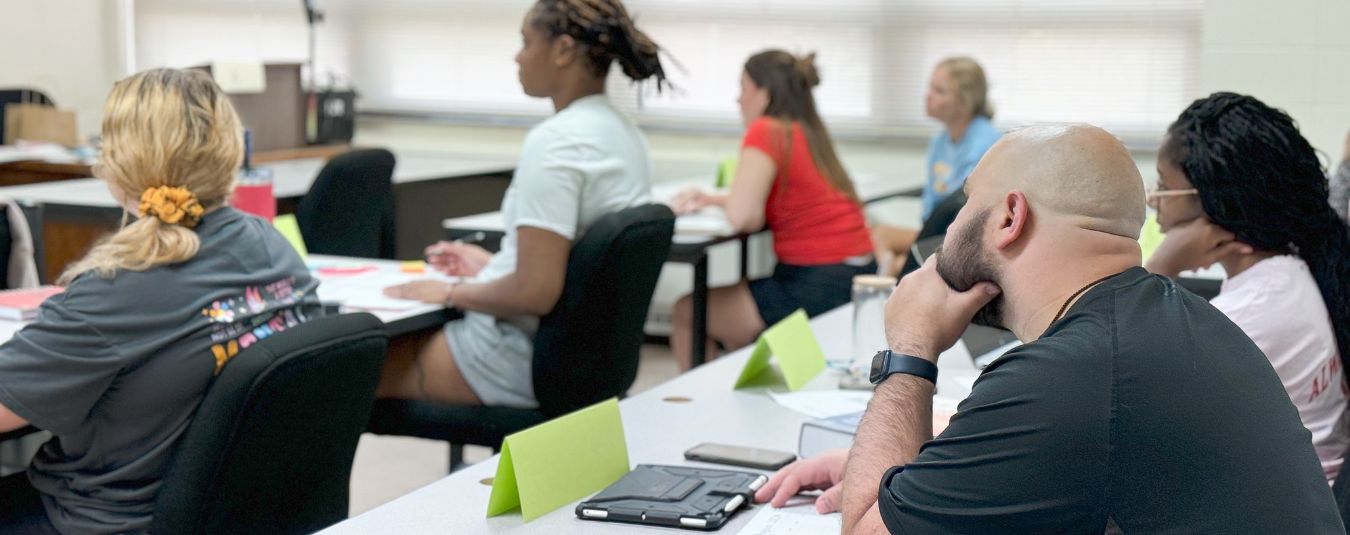Master of Education in Counseling

School Counseling
The Missouri Department of Elementary and Secondary Education (DESE) requires students who plan to serve as K-12 school counselors to hold certificate to teach and complete an approved program in School Counseling. Candidates who choose to become K-12 school counselors but do not hold a teaching certificate must complete a sequence of courses in which they demonstrate knowledge and skills to plan, implement and evaluate classroom guidance lessons. Candidates should confer with program advisors to select appropriate courses. The State of Missouri requires all candidates for certification as a Professional School Counselor to earn a passing score on the Missouri Content Area Assessment for Counselors. School Counseling students must complete the Application for the State of Missouri Counseling Certificate and submit it with all the required documents to Lincoln University's Certification Officer.
Community/Agency Counseling Program
The Community/Agency Counseling program meets the educational requirements for licensure as a Licensed Professional Counselor as determined by the Missouri Committee for Professional Counselors. Students enrolling in the Community Agency Counseling Program should have a strong background in psychology or social work. Students completing the M.Ed. Community/Agency Counseling Program are required to pass the Counselor Preparation Comprehensive Exam (CPCE). Students should confer regularly with their advisors about requirements Upon graduation, students wishing to obtain Missouri Licensed Professional Counselor status must meet all requirements as set forth by the Missouri Committee of Professional Counselors and apply for provisional license by following the procedure outlined on the Missouri Committee of Professional Counselors website.
Addiction Counseling Program
The Addictions Counseling program meets the educational requirements to become a Certified Alcohol & Drug Counselor (CADC) as determined by the Missouri Credentialing Board (MCB). Students enrolling in the Addictions Counseling program should have a background in psychology, social work, criminal justice, or a related field.
Students completing the M.Ed., Addictions Counseling program are required to pass the Alcohol and Drug Counselor Exam as provided by the International Certification and Reciprocity Consortium (IC&RC). Students should confer regularly with their advisor about requirements.
- Possess knowledge and competencies that are outlined by the Missouri Department of Elementary and Secondary Education for Professional School Counselors, Missouri Credentialing Board for Addictions Counselors or by the Missouri Committee for Licensed Professional Counselors for Community/Agency Counselors
- Demonstrate above average counseling skills.
- Show evidence of success in their work as professional counselors.
The following five gateway assessment benchmarks will assess candidate progress throughout the counseling program:
- Conditional acceptance in the graduate program (see entrance requirements)
- Removal of conditions - full acceptance into the graduate program
- G.P.A. 3.0 or better for first nine (9) graduate credit hours
- Signed Affidavit from the M.Ed. Counseling Student Handbook must be submitted to program advisor.
- Prior to clinical experience (EDU 526)
- Minimum G.P.A. of 3.0 with no more than one "C" grade in any course
- School Counseling candidates MUST receive a Grade of "B" or better in EDU 531 (Principles & Practices of School Counseling)
- Community/Agency Counseling candidates MUST receive a Grade of "B" or better in EDU 525 (Helping Skills).
- Prior to Graduation
- See above G.P.A. and course requirements
- Community/Agency Counseling candidates must successfully complete the Counselor Preparation Comprehensive Examination (CPCE).
- School Counseling candidates must complete scores from the Missouri Content Assessment for Counselors. These candidates should confer with their advisor(s) for information concerning score requirements.
- Prior to Certification
- Pass field experience (includes sit supervisor evaluations)
- Pass appropriate licensure assessment
